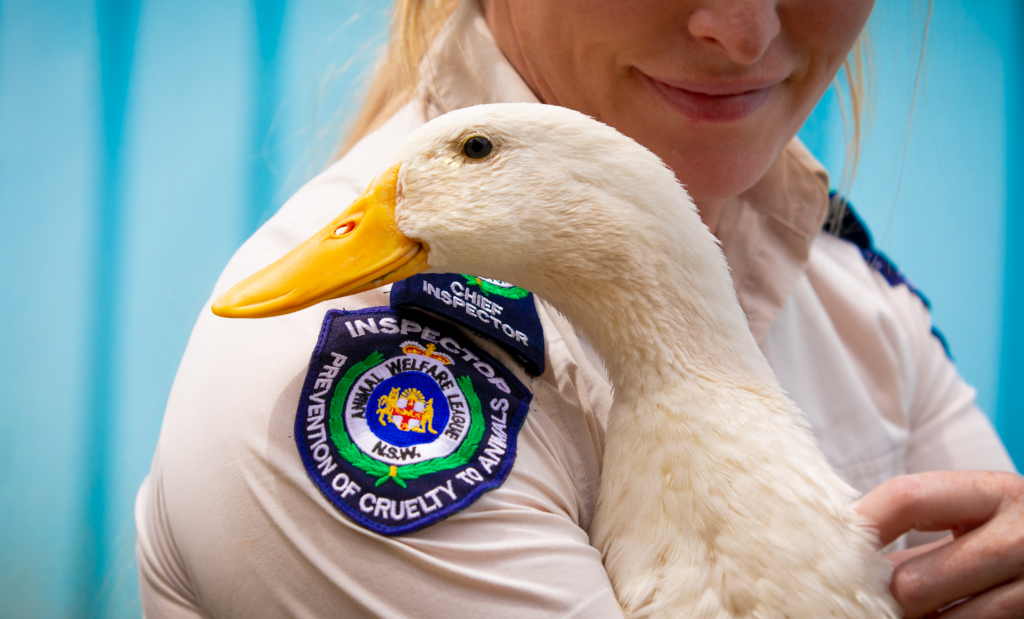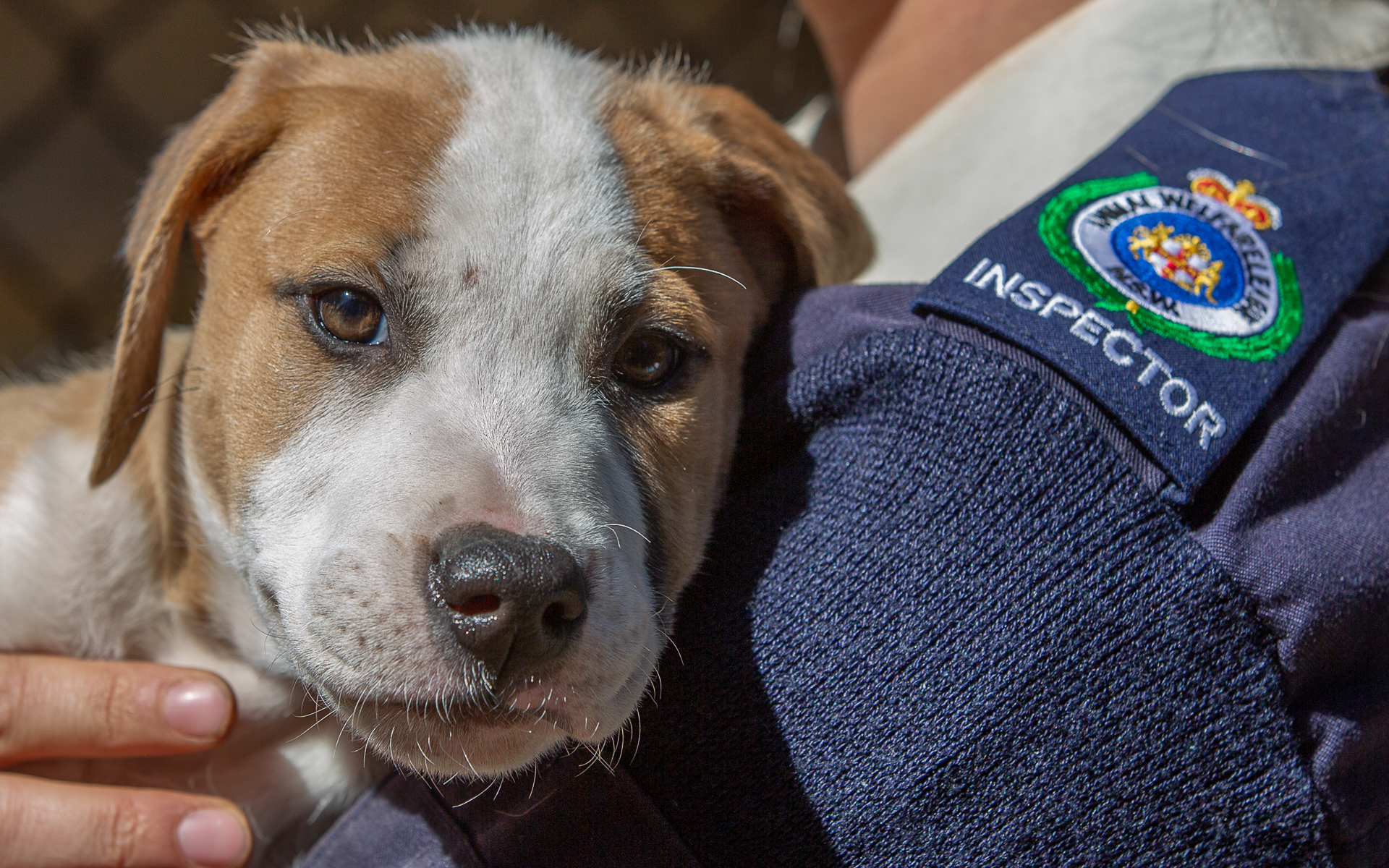The Animal Welfare League NSW Inspectorate, operating under the Prevention of Cruelty to Animals Act (1979), investigates animal cruelty and neglect.
Protecting animals, enforcing the law, and educating the community
The AWL NSW Inspectorate plays a vital role in protecting animals from cruelty and neglect. As an approved charitable organisation under the Prevention of Cruelty to Animals Act 1979, our team of metro and regional Inspectors investigate reports of animal mistreatment, educate pet owners, and work closely with other agencies to improve welfare outcomes for animals across NSW.
Our friendly and professional approach focuses on education first, helping people understand and meet their responsibilities as pet owners. When necessary, we take enforcement action to ensure the safety and well-being of animals.
We currently have inspectors operating in Sydney Metro, Orange, Bega and Glen Innes.

Help Us Keep Animals Safe
Report Animal Cruelty or Neglect
If you suspect an animal is suffering from cruelty or neglect, it’s important to speak up. You can report concerns to AWL NSW by:
Report an Animal Identification Breach
If you suspect a person or organisation is selling or giving away animals without a valid identification number, report this breach AWL NSW by:

What happens when I make a report?
- Animal Welfare League NSW receives the complaint via our online reporting form or our Inspectorate line on 02 8777 4444.
- Each report is reviewed by the AWL NSW Inspectorate. Where necessary, our team will contact the complainant to confirm details or request further information.
- An Inspector will be dispatched to investigate. This may involve visiting the location of concern, inspecting the animals involved, and speaking with the occupants about the reported welfare issue.
- The response will depend on whether any offences are identified under relevant legislation. When appropriate, Inspectors may provide advice or issue a verbal caution. In more serious cases, they may issue fines, written directions, or commence prosecution, which can include the seizure of animals.
- Follow-up inspections are also conducted to ensure compliance with any instructions issued.